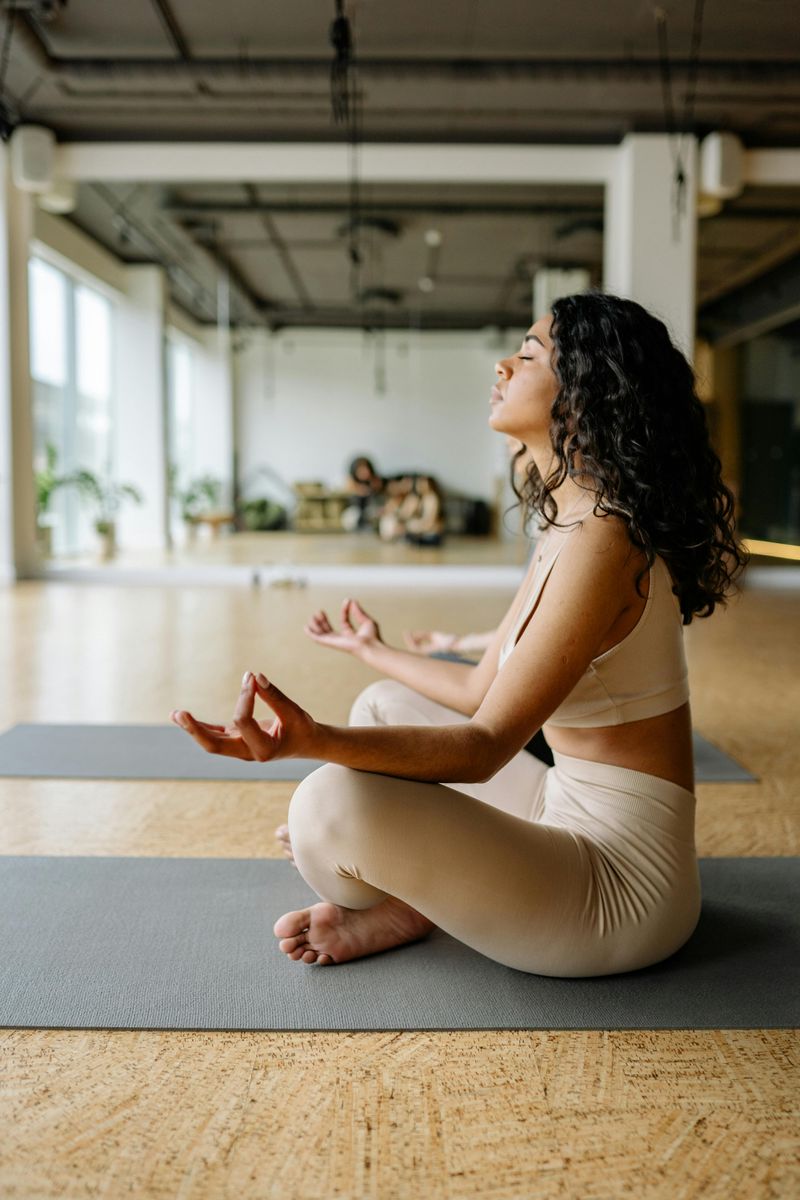Breaking free from codependent love is one of the most empowering journeys you can take. When you finally step away from unhealthy patterns, you start to see yourself and your relationships in a whole new light. You begin to realize that real love doesn’t mean losing yourself or constantly worrying about someone else’s happiness. Here are ten clear signs that show you’ve grown beyond codependency and are ready for healthier, more balanced connections.
1. You Value Your Own Needs and Say No Without Guilt
Learning to say no is like unlocking a superpower you didn’t know you had. When you were stuck in codependency, refusing requests felt impossible—like you’d hurt someone or lose their love forever. Now, you understand that protecting your time and energy isn’t selfish; it’s necessary.
Saying no doesn’t make you a bad person. It makes you honest and respectful of your own limits. You’ve learned that people who truly care about you will understand when you need space or can’t do something.
This shift means you’re finally putting yourself on the priority list. Your needs matter just as much as anyone else’s, and healthy relationships thrive when both people respect that balance.
2. You Enjoy Time Alone Without Feeling Incomplete
There was a time when being alone felt terrifying. You’d feel anxious or empty whenever your partner wasn’t around, as if a piece of you was missing. That constant need for someone else to make you feel whole was exhausting.
Now, solitude feels different—it’s actually enjoyable. You can spend an evening by yourself without checking your phone every five minutes or feeling panicked. You’ve discovered hobbies, thoughts, and dreams that belong to you alone.
Being comfortable in your own company is a huge milestone. It shows you’ve built a strong relationship with yourself, which is the foundation for any healthy partnership. You’re no longer running from yourself; you’re embracing who you are.
3. Your Self-Worth Doesn’t Depend on Your Partner’s Approval
Remember when your partner’s mood could make or break your entire day? If they seemed upset, you’d immediately think you did something wrong. Your self-esteem rose and fell based on their words, their expressions, their approval.
That’s changed now. You know your worth isn’t tied to someone else’s opinion of you. Whether your partner is having a bad day or not, you still feel good about who you are.
This independence is liberating. You’ve stopped seeking constant validation from others because you’ve learned to validate yourself. Your value comes from within, not from how well you please someone else. That’s real growth, and it changes everything about how you show up in relationships.
4. You Maintain Your Own Interests, Friendships, and Identity
Codependency often means your whole world revolves around one person. Your hobbies disappear, friendships fade, and suddenly you can’t remember what you liked to do before the relationship. Your identity gets swallowed up.
But now? You’ve reclaimed your life. You still have your own friends, your own passions, and your own goals that exist completely separate from your relationship. You’re not just someone’s partner—you’re a full person with your own story.
Keeping your identity strong makes relationships healthier. When both people bring their own interests and energy into the relationship, there’s more to share and celebrate. You’ve learned that love doesn’t mean losing yourself; it means sharing yourself.
5. You Know It’s Not Your Job to Fix Your Partner
In codependent relationships, you probably felt responsible for fixing everything—your partner’s bad moods, their problems, even their entire life. You thought love meant rescuing someone, even when it drained you completely.
Now you understand a powerful truth: everyone is responsible for their own healing and happiness. You can support and encourage your partner, but you can’t do the work for them. It’s not your burden to carry.
This realization lifts a huge weight off your shoulders. You’re no longer trying to control things that were never yours to control. You’ve learned that real love means standing beside someone, not carrying them through life while neglecting yourself.
6. You Communicate Honestly, Even When It’s Uncomfortable
Avoiding conflict to keep the peace used to be your go-to strategy. You’d swallow your feelings, pretend everything was fine, and let resentment build up inside. Honesty felt too risky—what if it caused a fight or pushed them away?
But silence only made things worse. Now, you’ve found your voice. You speak up about what bothers you, share your true feelings, and address issues before they explode.
Yes, it’s uncomfortable sometimes. Conflict isn’t fun, but it’s necessary for healthy relationships. You’ve realized that real intimacy comes from honest communication, not from pretending everything’s perfect. Being truthful actually brings you closer, not further apart. That’s a game-changer.
7. You Set Healthy Boundaries and Protect Your Energy
Boundaries used to feel mean or selfish. You’d let people take advantage of your time and energy because you didn’t want to seem difficult or uncaring. Saying no felt impossible, so you said yes to everything—even when it hurt you.
Now, boundaries are your best friend. You protect your emotional space, your time, and your well-being without feeling guilty about it. You’ve learned that boundaries aren’t walls; they’re guidelines that help relationships stay respectful.
Setting limits doesn’t mean you love someone less. It means you love yourself enough to take care of your own needs. People who respect you will honor your boundaries, and that’s exactly the kind of relationship you deserve.
8. You Engage in Balanced, Two-Way Relationships
Codependent love often looks one-sided: you give everything, and the other person takes. You’re always the helper, the listener, the fixer, while your own needs get ignored. It’s exhausting and lonely, even when you’re not alone.
You’ve moved beyond that now. You’re in relationships where support flows both ways. You give, but you also receive. You help others, and they help you back. There’s respect, balance, and fairness.
This balance feels so much better than constantly pouring from an empty cup. You’ve learned that healthy relationships aren’t about one person sacrificing everything. They’re about two people showing up for each other equally. That’s what real partnership looks like.
9. You Practice Self-Care Without Guilt or Fear
Taking care of yourself used to feel selfish. You’d skip rest, ignore your own needs, and feel guilty whenever you did something just for you. Self-care seemed like a luxury you didn’t deserve, especially if someone else needed you.
But now, self-care is non-negotiable. You rest when you’re tired. You say no when something doesn’t feel right. You take time for yourself without worrying that you’ll lose love because of it.
This shift is powerful. You’ve realized that taking care of yourself doesn’t make you selfish—it makes you strong. You can’t pour from an empty cup, and loving yourself is the first step to loving others in a healthy way.
10. You Understand Healthy Love Means Two Whole People Choosing Each Other
Codependent love feels like two broken pieces trying to make one whole. You believed you needed someone else to complete you, to fill the empty spaces inside. Without them, you felt lost and incomplete.
Now you see love differently. Healthy love isn’t about needing someone to survive; it’s about two whole, complete people choosing to share their lives together. You don’t need someone to fix you or fill your emptiness.
This understanding transforms everything. You’re no longer looking for someone to rescue you or complete you. You’re looking for a partner who respects, supports, and walks beside you—not someone to lean on desperately. That’s the foundation of real, lasting love.










